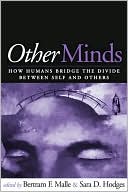Category Books
- Fiction Books & Literature
- Graphic Novels
- Horror
- Mystery & Crime
- Poetry
- Romance Books
- Science Fiction & Fantasy
- Thrillers
- Westerns
- Ages 0-2
- Ages 3-5
- Ages 6-8
- Ages 9-12
- Teens
- Children's Books
- African Americans
- Antiques & Collectibles
- Art, Architecture & Photography
- Bibles & Bible Studies
- Biography
- Business Books
- Christianity
- Computer Books & Technology Books
- Cookbooks, Food & Wine
- Crafts & Hobbies Books
- Education & Teaching
- Engineering
- Entertainment
- Foreign Languages
- Game Books
- Gay & Lesbian
- Health Books, Diet & Fitness Books
- History
- Home & Garden
- Humor Books
- Judaism & Judaica
- Law
- Medical Books
- New Age & Spirituality
- Nonfiction
- Parenting & Family
- Pets
- Philosophy
- Political Books & Current Events Books
- Psychology & Psychotherapy
- Reference
- Religion Books
- Science & Nature
- Self Improvement
- Sex & Relationships
- Social Sciences
- Sports & Adventure
- Study Guides & Test Prep
- Travel
- True Crime
- Weddings
- Women's Studies
Other Minds: How Humans Bridge the Divide between Self and Others » (New Edition)

Authors: Bertram F. Malle (Editor), Sara D. Hodges
ISBN-13: 9781593854683, ISBN-10: 1593854684
Format: Paperback
Publisher: Guilford Publications, Inc.
Date Published: January 2007
Edition: New Edition
Author Biography: Bertram F. Malle
Bertram F. Malle, PhD, is Associate Professor of Psychology at the University of Oregon and the recipient of a Society of Experimental Social Psychology Dissertation Award and a National Science Foundation Career Award. His research examines the cognitive tools that humans bring to social interaction, such as the folk concept of intentionality, inferences of mental states, and explanations of behavior. Dr. Malle is coeditor of two other volumes, Intentions and Intentionality and The Evolution of Language Out of Pre-Language, and the author of How the Mind Explains Behavior.
Sara D. Hodges, PhD, is Associate Professor of Psychology at the University of Oregon. Her research, which has been published in scholarly journals and edited volumes, explores the role of the self in people's perceptions of others, with a particular emphasis on empathy, projection, and social comparison. Dr. Hodges also studies how people construct evaluations and preferences in social contexts. Her research has received funding from the National Science Foundation, and she has been the recipient of two Rippey Innovative Teaching Awards at the University of Oregon.
Book Synopsis
One of the great challenges of social cognitive science is to understand how we can enter, or "read," the minds of others--that is, infer complex mental states such as beliefs, desires, intentions, and emotions. This book brings together leading scholars from psychology, neuroscience, and philosophy to present cutting-edge theories and empirical findings on this essential topic. Written in an engaging, accessible style, the volume examines the cognitive processes underlying mindreading; how interpersonal understanding and empathy develop across the lifespan; connections to language, communication, and relationships; and what happens when mindreading fails, in both normal and clinical populations.
Table of Contents
1. Executive Functioning and Children's Theories of Mind, Louis J. Moses
2. Three Puzzles of Mindreading, Bertram F. Malle
3. A "Constituent" Approach to the Study of Perspective Taking: What are Its Fundamental Elements?, Mark H. Davis
4. Starting without Theory: Confronting the Paradox of Conceptual Development, Daniel D. Hutto
II. Reading Behavior, Reading Minds
5. Is There a "Social Brain"?: Lessons from Eye-Gaze Following, Joint Attention, and Autism, Diego Fernandez-Duque and Jodie A. Baird
6. Visual Cues as Evidence of Others' Minds in Collaborative Physical Tasks, Susan R. Fussell, Robert E. Kraut, Darren Gergle, and Leslie D. Setlock
7. Attributing Motives to Other People, Glenn D. Reeder and David Trafimow
8. Explanatory Coherence and Goal-Based Knowledge Structures in Making Dispositional Inferences, Stephen J. Read and Lynn C. Miller
III. Reading One's Own Mind, Reading Other Minds
9. Perspective Taking as the Royal Avenue to Empathy, Jean Decety
10. Everyday Solutions to the Problem of Other Minds: Which Tools Are Used When?, Daniel R. Ames
11. Mental Simulation: Royal Road to Other Minds?, Josef Perner and Anton Kühberger
12. Why Self-Ascriptions Are Difficult and Develop Late, Radu J. Bogdan
IV. Language and Other Minds
13. Language as the Route into Other Minds, Janet Wilde Astington and Eva Filippova
14. Representation of the Interlocutor's Mind during Conversation, Marjorie Barker and T. Givón
15. Conceptual Alignment in Conversation, Michael F. Schober
16. On the Inherent Ambiguity of Traits and Other Mental Concepts, James S. Uleman
V. Limits of Mindreading
17. Mindreading in an Exotic Case: The Normal Adult Human, Dale J. Barr and Boaz Keysar
18. Empathy Gaps in Emotional Perspective Taking, Leaf Van Boven and George Loewenstein
19. Is How Much You Understand Me in Your Head or Mine?, Sara D. Hodges
20. Empathic Accuracy and Inaccuracy in Close Relationships, William Ickes, Jeffry A. Simpson, and Minda Oriña
21. Theory of Mind in Schizophrenia, Robyn Langdon
Subjects
 Philosophy
Philosophy  Major Branches of Philosophical Study
Major Branches of Philosophical StudyNonfiction
 Psychology
Psychology  Psychology - Theory, History & Research
Psychology - Theory, History & ResearchPhilosophy
 Major Branches of Philosophical Study
Major Branches of Philosophical Study  Epistemology (Theory of Knowledge)
Epistemology (Theory of Knowledge)Psychology & Psychotherapy
 Psychology - Theory, History & Research
Psychology - Theory, History & Research  Social Psychology
Social PsychologyMedical Books
 Psychology & Psychotherapy
Psychology & Psychotherapy  Psychology - Theory, History & Research
Psychology - Theory, History & Research
